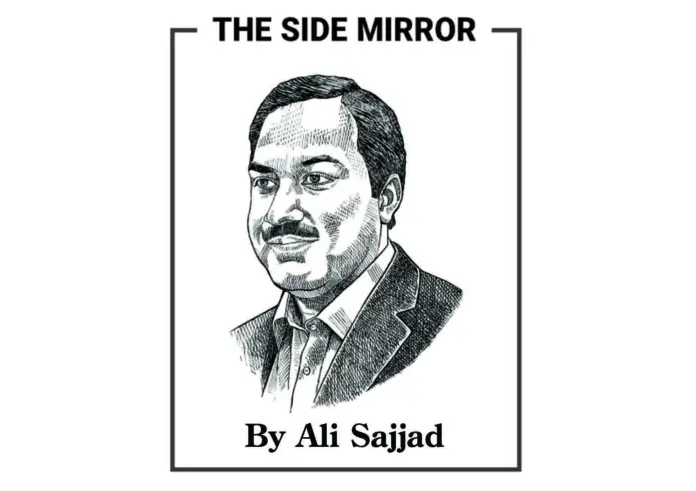Information Minister Fawad Chaudhry is a man of many sides. That makes him a perfect politician. And an ideal information minister who knows how to live with the media and politicians of Pakistan.
His blunt and without a tongue-in-cheek statements often hit a raw nerve with the people, especially the media.
I often do not see to eye with him when he is defending his government. But that is his core job. He is, however, on the right side of history when he comments on the prevailing political landscape, society, extremism and so on.
In his recent statement, the outspoken minister stated that the Pakistani government and state are not ready to fight extremism, which is why they (the government) choose to negotiate with terror outfits.
Who can deny this fact? The problem, however, is that most of the time, we do not hear such factual realities from the people who matter.
A day will come when these government officials will stop victimizing themselves and start taking responsibility for their actions. Such sob stories can only work to an extent in a limited time frame, however, keeping the same narrative will not do them any good.
Extremism is a deeply rooted phenomenon that has plagued the minds of the masses. Sadly, the media has not played its due role to fight the established phenomena.
So much so that the likes of Saad Hussain Rizvi and his scores of activists, who insinuated the idea of ransacking the capital when the government did not agree to their terms, are free people. The government also cannot distance itself from these instances and say that there is extremism in society because of so and so. When the prime minister gives remarks, which invite terrorists to live as normal citizens and when people are removed from top government positions because of their beliefs, it is the government and state that is actively participating in propagating the idea that we are open to any and all kinds of extremism.
The minister, while giving a speech at Pakistan Institute of Peace Studies, also stated that, “If you want soft change, you must be hard,” hinting at the idea that change in society can only occur if laws are enforced. This statement comes as quite the opposite of the negotiation that was held with the TLP, a former banned outfit.
Similarly, the state continues to hold dialogues with the banned Tehreek-i-Taliban Pakistan (TTP), which routinely claims responsibility for terrorism. If the TTP is silent after a blast, minister after minister start issuing statements that India is behind the blast.
It is commendable, however, that the minister laid the blame of chaos in the country due to extremism on its own people rather than India, the hostile neighbor that has been blamed often for such acts.
However, the idea that he proposed, which suggested that the British had created a system that had nothing to do with extremism and it was the latter institutions and governments that instilled the hatred, can be refuted on the grounds of much available literature.
The British empire was famous for its divide and rule policy, which is rooted in extremism on many levels. Extremism in Pakistan can be fought off by the state and government as it is not as weak as it is portrayed. Negotiating with terrorists only undermines the power of the government and if the PTI desires another five years in office, it must rethink its policies and stop with the sob stories.
And it had better start listening to the likes of Fawad Chaudhry.






